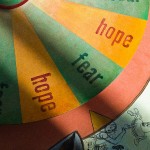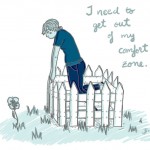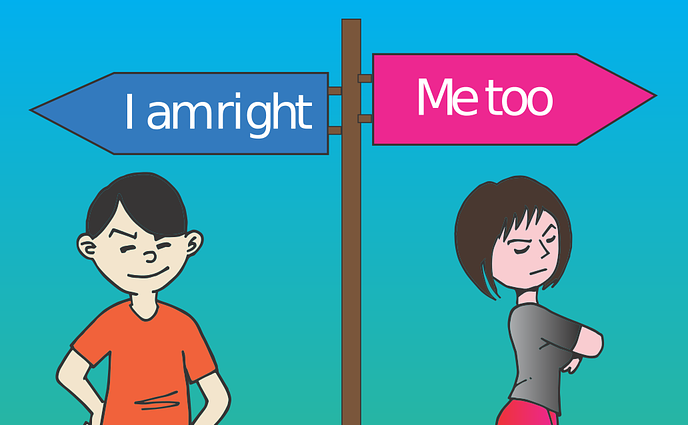 FEAR: False Evidence Appearing Real
FEAR: False Evidence Appearing Real
HOPE: Heaping Optimism Predicting Euphoria
Let me guess—you’d rather feel hope than fear, right? I know I would. But when we take a closer look at these emotions, we find that they aren’t really that different. The Knower/Judger has amazing ways of taking us out of the present. Here’s a look at how both hope and fear put us in fantasyland rather than reality.
Eckhart Tolle is fond of explaining the past and future as pure fantasy. The past has passed. And it only exists as we’ve perceived it through our K/J filters anyway. Others probably did not perceive it the same way. Nothing can change the past. It is what it was. Tolle’s future is even more of a fantasy since it hasn’t even happened yet.
To feel fear or hope, we have to extrapolate a set of circumstances that we perceive will occur in the future. To Tolle, there is only now, no future and no past.
That means neither fear nor hope can ever be based on reality. They are forward extrapolations generated by our K/Js, a product of our upbringing and our learned fortune models. While we may want hope and want to avoid fear, neither is based in reality. (Read Tolle’s book The Power of Now to learn more about what he has to say.)
The payoff
Since our K/J is a part of our interaction with the rest of the world, let’s look at a payoff matrix for hope and fear.
| Outcome | K/J Feeling | |
| Hope | Fear | |
| Productive | I was right! | Got away with it. |
| Destructive | Can’t believe that happened to me! | I was right. |
When my K/J predicts a negative outcome and life rewards me by meeting that expectation, I’m prone to say something like “I just knew that was going to happen.” Any of you hear yourself saying that? It’s a version of “See? I’m right.”
Likewise, when my K/J exercises the hope option and is rewarded by a successful outcome, I tend to reward myself. “Slam dunk! Cha-ching! A no-doubter!”
What happens when fear or hope is not justified by the outcome? I tend to react with incredulity. “I can’t believe that happened to me…again!” Or, “Geez. I got away with that!”
Did my K/J’s wish for success (hope) or prediction of failure (fear) affect the outcome? Or just my perception of the outcome?
Keeping us locked in the comfort zone
Our K/J is fueled by our feelings. When we feel “good” or “bad” about something, it’s because we’ve judged that something to be good or bad based on our set of rules. When Chip and Dan Heath talk about “emotional” vs. “rational” in their book Switch, they’re talking about running our lives based on our feelings instead of the facts (which I would term “reality”). Feelings of hope and fear are the rewards we give ourselves to satisfy this emotional need. They satisfy our K/J need for a feeling to attach to this occurrence.
We develop expectations. Sometimes they’re met and sometimes they’re not. It’s my experience that whatever my expectations are, they rarely if ever actually affect the outcome. And my reactions are mapped in the matrix above.
I see fear and hope as flip sides of the same coin. It’s that coin we use when we have a K/J need to explain something…it’s in our “comfort zone.”
Paralyzing fear and Pollyanna-like hope are the rewards our K/J gives itself when we aren’t accessing our Learner/Researcher. Our L/R looks at unfiltered data sans emotion. It’s the “rational” to the Heath brothers’ “emotional.”
When you can’t beat emotion, choose one
All that said, we have a choice. If my K/J has to get involved, am I better served predicting success or failure…feeling hope or fear?
Unless I’m totally confident that I can ignore my K/J and stay in my L/R, then I’m going to bet on hope. While I can realize it’s just as much a fantasy as fear, my reactions to unmet expectations of hope leave me in a much better state than my reactions to the met expectations of fear.
What do I mean by that? When I predict failure and my K/J is running the dysfunctional Kim DeMotte Show, I go into an emotional (and sometimes physical) tailspin. Accidents start happening. My reactions are predictable—cursing and anger. I’m in a bad place. Period.
When my hopeful prediction comes true, I feel blessed. I feel euphoric. I feel like my karma is in total synch.
When I’m in the fear mode and my negative expectation is not realized, I tend to ignore it and just go on, in some dysfunctional way looking for a different outcome that will rationalize that prediction…waiting for the other shoe to drop.
When I’m in the hope mode and that prediction does not pan out, I find accessing the L/R for data somehow easier. “Well,” I tell myself, “I guess the odds weren’t really that good after all.”
I believe the imbalance in the use of fear and hope is learned. My L/R has the data about how much damage I can do if I keep looking for negative outcomes. While I don’t seem to be able to completely disconnect from having expectations and generating feelings about them, I do have a choice about which feelings I prefer.
Don’t like that feeling? You could choose a different one. That’s a whole ’nuther article.



